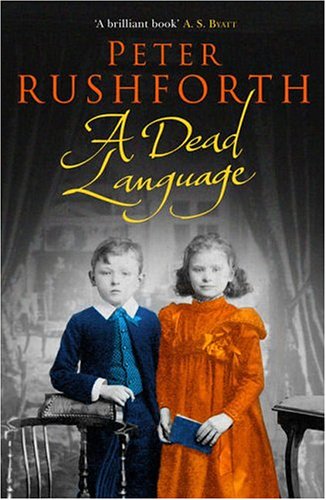A Dead Language
Benjamin Franklin Pinkerton is the naval lieutenant who abandons Madam Butterfly in Puccini’s famous opera. A Dead Language, sequel to Pinkerton’s Sister, explores Lt. Pinkerton’s childhood in late 19th century New York to see how a man nearly sociopathic in his callousness comes to be.
Young Ben’s problem is that he died as a boy. Not literally, but his father took enormous sadistic glee in crushing any happy or spontaneous impulse he ever displayed. His attachment to his mother and his sisters, his appreciation of music and books, the way he walks, talks, thinks, and speaks, all these must be mutilated in the name of manhood. As he is a small, pretty boy, his father’s hysterical obsession with homosexuality has particular resonance.
After the elder Pinkerton’s suicide, the task of destroying Ben is taken over by Mr. Rappaport, teacher of Latin and Sport at his new school. On the first day, Mr. Rappaport singles out boys who have recently lost their fathers and demands that they conjugate the following sentence: The father loves his son. This sets the tone for the years of unremitting cruelty and humiliation to follow. Mr. Rappaport demonstrates a seemingly insatiable thirst for the tears of his charges, and it is under his tutelage that Ben learns to hide every emotion.
Rushforth’s years as a teacher inform every excruciating detail. He knows the power of a mean word; there is virtually no physical violence in this book, but it’s still one of the most vicious novels you’ll ever read. Improbably, it’s also very funny. He pulled off a similar miracle in Pinkerton’s Sister, an account of abuse and madness that, in addition to being incredibly literate and moving, was also sharply witty.
Rushforth’s work is unique. His books are sophisticated, passionate, informed novels, truly massive achievements. He passed away in 2005.










